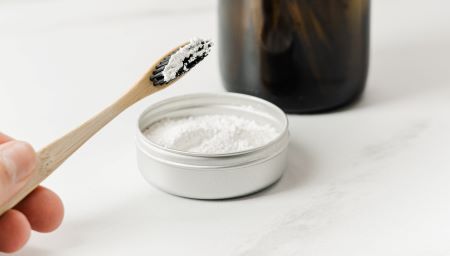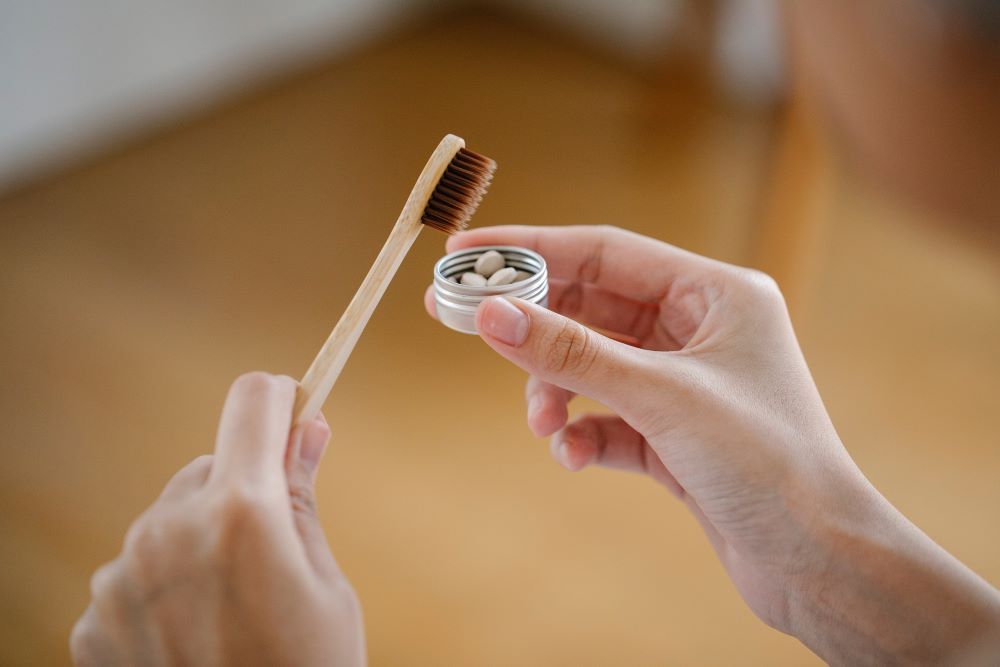Zero waste living has gained momentum as individuals strive to reduce their environmental footprint. From reusable shopping bags to eco-friendly household products, people are actively seeking sustainable alternatives in various aspects of their lives. One area where significant progress has been made is in oral care, specifically toothpaste.
Let’s look at 5 zero waste toothpaste options that allow you to maintain excellent oral hygiene while minimizing waste.
- Toothpaste Tablets
- Toothpaste Powder
- Toothpaste in Recyclable Packaging
- Homemade Toothpaste
- Toothpaste Tablets vs. Toothpaste Powder
Understanding Zero Waste Toothpaste
Zero waste toothpaste refers to oral care products that are designed to eliminate or minimize waste throughout their lifecycle. Traditional toothpaste tubes, often made of non-recyclable plastic, contribute to the ever-growing waste problem. Zero waste toothpaste aims to address this issue by utilizing sustainable packaging materials and eco-friendly ingredients. By making conscious choices in oral care, individuals can make a positive impact on the environment.
1. Toothpaste Tablets
Toothpaste tablets have gained popularity as a zero waste alternative to traditional toothpaste. These small, solid tablets contain the necessary ingredients for effective oral hygiene. To use them, you simply pop a tablet into your mouth, chew it until it forms a paste, and then brush your teeth as usual. Many toothpaste tablet brands package their products in recyclable or compostable containers, further reducing waste.
2. Toothpaste Powder
Another zero waste toothpaste option is toothpaste powder. This powdered form of toothpaste typically comes in a small jar or tin. To use it, you dampen your toothbrush and dip it into the powder, then brush your teeth. Toothpaste powder often contains natural ingredients like baking soda, clay, and essential oils, providing effective cleaning and freshening properties. With its minimal packaging and long-lasting nature, toothpaste powder is an excellent eco-friendly choice.
3. Toothpaste in Recyclable Packaging
While toothpaste tubes are generally not recyclable due to their mixed materials, some companies have introduced toothpaste in recyclable packaging. These brands utilize alternative materials like aluminum or compostable materials such as paper tubes or pouches. By opting for toothpaste packaged in recyclable containers, you can significantly reduce waste and contribute to a more sustainable future.
4. Homemade Toothpaste
For those who enjoy a DIY approach, making your own toothpaste is an ideal way to achieve zero waste oral care. Homemade toothpaste recipes often involve simple ingredients like baking soda, coconut oil, and essential oils. By controlling the ingredients, you can customize your toothpaste to suit your preferences and oral health needs. Additionally, you can store homemade toothpaste in reusable jars, further reducing waste.
5. Toothpaste Tablets vs. Toothpaste Powder
When choosing between toothpaste tablets and toothpaste powder, personal preference plays a significant role. Toothpaste tablets offer convenience and ease of use, especially for travel, while toothpaste powder allows for customization and longer usage due to its concentrated form. Both options significantly reduce waste compared to traditional toothpaste tubes, so selecting either is a step toward a more sustainable oral care routine.

In a world increasingly concerned about the environment, adopting zero waste toothpaste options is a small yet impactful change we can make in our daily lives. Whether you opt for toothpaste tablets, toothpaste powder, products in recyclable packaging, or homemade alternatives, each choice contributes to minimizing waste and preserving our planet’s resources. By embracing sustainable oral care practices, we can achieve a greener future while maintaining excellent dental hygiene. Remember, even the smallest changes can make a significant difference when it comes to protecting our environment
